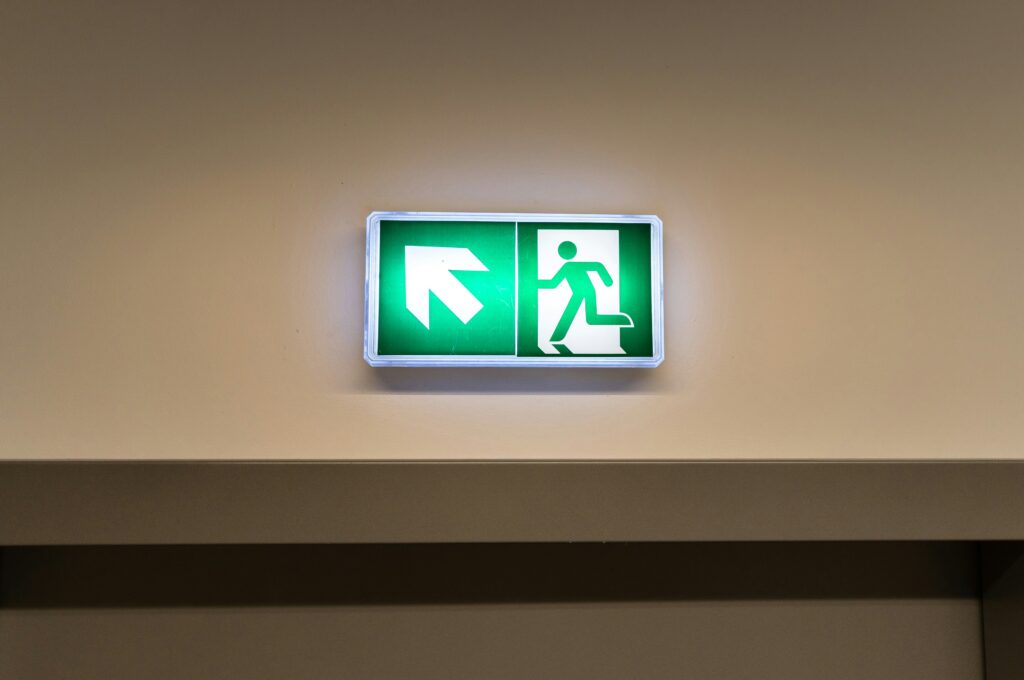When guests face life-threatening emergencies, hospitality staff become first responders who save lives.
Yet many hospitality studies programs barely mention emergency protocols that can mean the difference between tragedy and successful rescue. From medical crises to security threats, hotels deal with dangerous situations daily that require immediate professional response. Understanding these realities prepares future hospitalians for responsibilities that extend far beyond customer service.
Types of Emergencies That Test Hospitality Professionals
Hotels encounter diverse emergency situations that require rapid response and coordinated action from staff members who may have limited medical or security training. Recognition and appropriate response protocols can literally save lives when properly implemented.
- Medical Emergencies in Guest Rooms: Heart attacks, strokes, allergic reactions, and accidental injuries occur regularly in hotel environments where guests may be alone, intoxicated, or engaging in risky activities. Staff response speed and competence determine outcomes significantly.
- Security Threats and Violence: Domestic violence, assault, theft, and harassment create dangerous situations that require careful handling to protect both victims and other guests. These incidents test staff judgment and training while creating legal liability for properties.
- Environmental Hazards: Fire emergencies, gas leaks, structural damage, and severe weather events endanger entire properties and require evacuation procedures that staff must execute flawlessly under pressure. Poor emergency response can result in multiple casualties.
According to the American Hospital Association, hotels generate over 2 million emergency service calls annually for guest-related medical issues alone. This statistic demonstrates how frequently hospitality professionals encounter life-threatening situations that require immediate competent response.
Mental Health Crises: Suicide attempts, substance abuse emergencies, and psychological breakdowns create complex situations requiring sensitivity, professional training, and coordinated response with mental health professionals and emergency services.
The hospitality industry's 24/7 operations mean emergencies occur at all hours when staffing may be minimal and emergency services response times extended. This reality places enormous responsibility on individual staff members who must make critical decisions quickly.
Emergency Response Protocols Every Hospitalian Should Know
Effective emergency response requires systematic training and regular practice that hospitality studies programs must integrate into core curricula. These skills distinguish professional hospitalians from untrained staff who panic during crises.
Immediate Assessment and Response: The first few minutes determine emergency outcomes significantly. Staff must quickly evaluate situations, ensure personal safety, and contact appropriate emergency services while providing initial assistance to victims.
Communication Protocols During Crises: Clear information sharing with emergency responders, management, and other staff prevents confusion that can worsen dangerous situations. Accurate details about location, victim condition, and hazards help first responders prepare appropriately.
Guest Privacy vs. Safety Considerations: Emergency situations create tension between guest privacy rights and safety obligations. Staff must make quick decisions about room entry, information sharing, and family notification that protect lives while respecting legal requirements.
- Master key usage during medical emergencies requires specific authorization procedures
- Medical information sharing with emergency responders must follow privacy regulations
- Family notification protocols balance urgency with guest consent requirements
- Property liability considerations influence response procedures and documentation
Evacuation Procedures: Large-scale emergencies may require guest evacuation using procedures that staff must execute without panic or confusion. These situations test training, leadership, and teamwork under extreme pressure.
Hospitality studies programs should include regular emergency drills and scenario training that prepare students for real-world crisis situations. This preparation builds confidence and competence that can save lives when emergencies occur.
Legal Responsibilities and Liability Issues
Hotels have specific legal obligations regarding guest safety that create both opportunities and risks for hospitality professionals responding to emergencies. Understanding these requirements helps staff make appropriate decisions during crises.
Duty of Care Obligations: Properties must provide reasonably safe environments and appropriate response to foreseeable emergencies. This responsibility extends beyond basic security to include medical assistance and evacuation support when necessary.
Documentation Requirements: Emergency incidents require detailed recording that protects both properties and staff from liability while providing information for investigation and insurance claims. Proper documentation can determine legal outcomes significantly.
Staff Training Mandates: Many jurisdictions require specific emergency response training for hospitality workers that goes beyond basic first aid to include crisis management and coordination with emergency services. Compliance creates both legal protection and operational capability.
Professional hospitality education must address these legal realities honestly to prepare graduates for actual workplace responsibilities rather than idealized customer service scenarios. This knowledge protects both careers and lives.
Privacy regulations complicate emergency response when guests are unconscious, intoxicated, or otherwise unable to consent to assistance. Staff must balance legal requirements with immediate safety needs during time-critical situations.
Liability Protection: Proper training and protocol compliance protect hospitality professionals from personal liability when providing emergency assistance. This protection encourages appropriate response rather than hesitation during crises.
Building Emergency Competence Through Hospitality Education
Modern hospitality studies must integrate comprehensive emergency preparedness that goes beyond basic first aid to include crisis leadership, communication, and coordination skills essential for saving lives and protecting property.
Certification Programs: CPR, AED, and first aid certifications should be mandatory for all hospitality graduates regardless of intended specialization. These skills apply across all industry sectors and career levels while providing immediate value to employers.
Scenario-Based Training: Realistic emergency simulations prepare students for actual crisis situations better than theoretical study alone. This hands-on experience builds confidence and competence that cannot be developed through textbooks.
Crisis Leadership Development: Emergency situations require immediate leadership from available staff regardless of formal authority or experience. Training in crisis decision-making and team coordination prepares students for these responsibilities.
Partnerships with local emergency services provide authentic training opportunities while building relationships that benefit properties during actual emergencies. These connections often prove invaluable when crises occur.
Psychological Preparation: Emergency response training must address emotional and psychological challenges of dealing with injured, frightened, or dying individuals. This preparation helps staff maintain effectiveness during traumatic situations.
Industry case studies demonstrate how proper training saves lives while inadequate preparation results in preventable tragedies. These examples motivate serious attention to emergency preparedness rather than treating it as peripheral knowledge.
Final thoughts
Emergency preparedness distinguishes professional hospitalians from those who merely provide routine customer service. When lives hang in the balance, training and competence determine whether staff become heroes or helpless bystanders during critical moments.
Your hospitality education should include comprehensive emergency response training that prepares you for life-and-death responsibilities inherent in hotel operations. These skills protect both guests and your professional reputation while creating value that employers highly prize.
The hospitality industry needs professionals who can handle any situation with competence and composure. Emergency preparedness training provides confidence and capabilities that serve entire careers while potentially saving lives during critical moments.
Hospitality Academy integrates comprehensive emergency response training throughout our curricula to prepare graduates for real-world responsibilities that extend far beyond customer service. Our students graduate ready to handle any situation professionally.Prepare for hospitality's real responsibilities through education that includes life-saving emergency response training alongside traditional hospitality skills.


